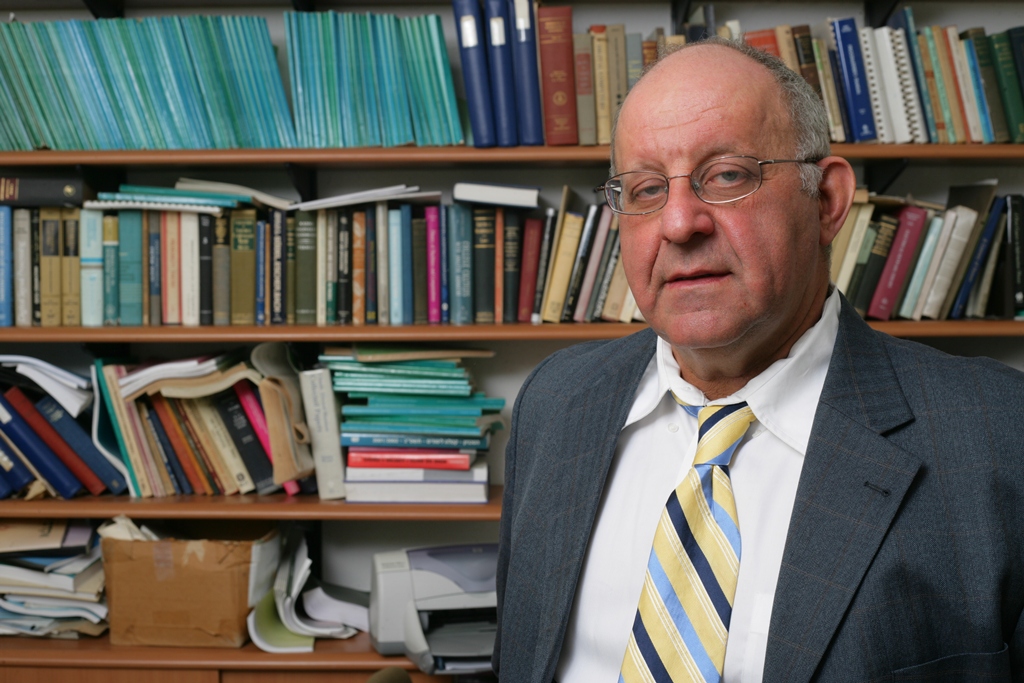The award is given by IEEE Information Theory Society

Professor Shlomo Shamai, from the Faculty of Electrical Engineering, won the Shannon Award for 2011. The award is given by the IEEE Information Theory Society
The award, given for "a consistent and significant contribution to the field of information theory", is considered the most important award in the field. The first laureate, in 1973, was Claude Shannon himself (article below).
Professor Shamai completed his three degrees at the Faculty of Electrical Engineering at the Technion - he studied for the first degree as part of the reserve, and completed the next two during his military service. "Working in the R&D unit in the IDF," he says, "focused me on my current areas of practice - various topics in Information Theory, including channel coding, theoretical limitations in communication under practical constraints, multi-user communication systems, and theoretical models of Wireless cellular systems."
In 1986, Shamai joined the faculty as a faculty member, thus joining an old and distinguished "family" of faculty members dealing with information theory, among them professors Yaakov Ziv (1992 Schon award winner), Moshe Zakai, Israel Bar David (who guided him to his doctorate) and visiting professor Andrew Viterbi (winner of the 1991 Witty Award). "These are people of the highest rank," he points out.
Even today, there is a wide and in-depth activity in the faculty in this field - in an excellent atmosphere, according to him. The younger generation in the field includes, in addition to Professor Shamai, Professors Neri Merhav, Yosef Steinberg, Yigal Sasson and Tzachi Wiseman, who are among the top researchers in the world.
A striker before the camp
A brilliant article published by Claude Shannon in 1948 paved the way for the foundation of a new field of research
Claude Shannon (2001-1916) is considered the father of information theory, and his theoretical work has enormous implications for our lives today, among other things in the field of encryption and analog and digital communication.
In his youth, Shannon was interested in electronic devices, and built several original devices, including a device that moves the chess pieces on the board. When he was only 22 years old he published his brilliant thesis in the field of branding theory, and at the age of 24 he received a doctorate from MIT. During World War II, he developed theories that enabled the encryption and decryption of messages, and is therefore also considered one of the fathers of cryptology - the theory of encryption. His most famous paper, "A Mathematical Theory of Communication", was published in 1948. In this article, he presented the mathematical model of information and a communication system as a means of information mobility, and specifically identified the key concepts and parameters relevant to defining the capabilities and limitations in the transfer (transmission and reception) of information in a reliable manner. The concepts presented by Shannon in this article influenced not only the world of communication. "This is a genius article, which founded information theory overnight," says Professor Shamai. "Shannon introduced a new and innovative thought into this field, and thus founded it as a mature theoretical field that has since developed into a wide variety of topics relevant, among other things, to telephone and wireless communications, optical and satellite communications, cellular communications, and the Internet."
Theory in the service of technology
Communication theory is an extensive and branched theory, which concerns everything related to the processing and transfer of information - speech, broadcasting, telephones, internet and more. "The developments in the last fifteen years in the field of communication show that the theoretical predictions are accurate, and we can certainly say that information theory is the pioneer that enables technological progress.
"The technological development, and within it the miniaturization and cheapening of electronic components, shifts the emphasis from 'how to do' to 'what to do'. Today, if you need to add a few thousand transistors to any processor, it's 'small money'. That is why theoretical research, academic in nature, is extremely relevant in the advanced communications industry, which expects optimal solutions as possible for the next generations of communication and information processing systems."
The cognitive radio
The close connection between theory and practice, and the dependence of advanced industry on academic research, make the doctoral students engaged in this field in the faculty a "sought after commodity" in the market. For example, in the CORNET consortium, a framework on behalf of the chief scientist of the Ministry of Commerce and Industry, scientists from research universities and industry people work together, focusing on the "hot" field of cognitive radio. In this framework, information theory approaches, based on results and current theoretical understandings, enable the development of new ways for more efficient utilization of the spectrum by different users operating simultaneously in overlapping segments of the spectrum.

2 תגובות
Shlomo's greetings
Good for you !!!
strength happy for you